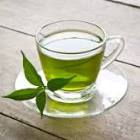Read more from Allison here
Dr. Allison Lamont, Brain and Memory Foundation.
Avocados are great brain food, in moderation! See more about this below.
What you eat does affect how well you think and remember.
Just as your body needs to be in peak condition as you grow older, to have a memory that keeps growing and never lets you down, your brain and neurons need the right foods also.
What you eat directly affects the performance of your brain.
Your intelligence, the way you move, your personality, your memory and even the beating of your heart, all rely on your brain.
Research has shown that by eating the right food, you can boost your IQ, improve your mood, be more emotionally stable, sharpen your memory and keep your mind young. The right nutrients are really important to allow your brain the power to think more quickly, remember more effectively, be better coordinated and balanced and have improved concentration.
Unfortunately, with all of the food processing that takes place today, and because so many of the ingredients that are actively bad for your brain are used in almost everything edible in the supermarket, it is increasingly difficult to make sure that the foods you are eating are the right ones.
Think 'balanced diet' as you plan your meals for the week. Be sure to include at least 25 of the following in your shopping list.
Lean Protein
1. Fish – Salmon, tuna, mackerel, herring (also listed under fats)
2. Poultry – chicken and turkey (skinless)
3. Meat – lean beef and pork
4. Eggs – free-range and/or organic eggs are best
5. Tofu and Soy products
6. Dairy products – low fat cheeses, cottage cheese, low fat yogurt (sugar free) and low fat or skim milk
7. Beans and lentils – also listed under carbohydrates
8. Nuts and seeds, especially walnuts – also listed under fats

Complex Carbohydrates
1. Berries – especially blueberries, raspberries, strawberries, blackberries (keep frozen berries on hand as well)
2. Oranges, lemons, limes, grapefruit
3. Cherries
4. Peaches, plums
5. Broccoli, cauliflower, Brussels sprouts
6. Oats (the long cooking kind), whole wheat items, wholemeal bread with at least 3 grams of fibre.
7. Red or yellow peppers (much higher in Vitamin C than green)
8. Pumpkin squash
9. Spinach – for salad or cooked, adds fiber and nutrients
10. Tomatoes
11. Yams
12. Beans – also listed under proteins

Fats
1. Avocados (great news for avocado fans!)
2. Extra virgin cold pressed olive oil
3. Olives
4. Salmon – also listed under protein
5. Nuts and Nut Butter, especially walnuts, macadamia nuts, Brazil nuts, pecans and almonds – also listed under protein
Liquids

1. Water
2. Green or black tea
Remember to include minerals, too, as they are also critical to mental functioning and performance.
Magnesium and manganese are needed for brain energy. Sodium, potassium and calcium are important in the thinking process and they facilitate the transmission of messages. Check food labels.
Dr. Allison Lamont is the clinician at the Auckland Memory Clinic. She knows it is vitally important that we do everything we can to prevent memory loss and the onset of dementia.
Would you like to practise your memory skills? Sign up for the absolutely FREE Brain Tune course at http://brainandmemoryfoundation.org. You will find loads of fun things to do to improve your memory, and will also receive a monthly Newsletter jam-packed with things to do, information about your memory, and the latest research into what we can do to prevent memory loss.
If you are living in Auckland, you may like to attend a Brain Fit For Life workshop. This is five inter-active sessions where you learn about brain and memory health and have practise in all the strategies and tips you need to keep your memory sharp and active, and to build brain resilience. If you want to know more, just email me at Dr.Lamont@memoryclinic.co.nz.









LeisureLady - 10 years ago
Thankyou Dr. Alison Lamont, I love these foods and I try to include most of
in my diet. I keep away from wheat because todays flour are more refined
than ever one of the reasons for gluten sensitivity.
I enjoy using organic cold pressed coconut oil,that with olive oil ,and a
good 3 omega and daily excercise to help me avoid Demenia or Alziemers.
Best wishes Judy.